The Complete Guide to Rabbit Care and Maintenance.
Rabbit care and maintenance
Rabbit care and maintenance is an important aspects of being a responsible rabbit owner. Rabbits can make great pets, but they require proper care and attention to maintain their health and happiness. In this guide, we'll cover the essentials of rabbit care and maintenance, including diet, housing, grooming, and health.
DietA healthy diet is essential for your rabbit's well-being. A diet that is high in fiber is important for maintaining good digestive health. Your rabbit's diet should consist of hay, fresh vegetables, and a limited amount of pellets. Hay should make up the majority of your rabbit's diet, and fresh vegetables should be offered daily. Pellets should be given in limited quantities to avoid obesity. It's important to avoid feeding your rabbit sugary or fatty foods, as these can lead to health issues such as obesity and dental problems.
Housing
Your rabbit's housing should be comfortable, safe, and spacious. Indoor rabbits should have a large cage or pen with plenty of space to move around. Outdoor rabbits should have a secure hutch or run with protection from the elements. Your rabbit's housing should be cleaned regularly to prevent the buildup of bacteria and odors. A clean and comfortable living environment is important for your rabbit's health and happiness.
Grooming
Rabbits require regular grooming to keep their coats healthy and free of mats. Depending on the breed, your rabbit may need to be groomed daily or weekly. Brushing your rabbit's coat will help remove loose fur and prevent matting. It's also important to keep your rabbit's nails trimmed to avoid discomfort and injury.
Health
Regular check-ups with a veterinarian are important for maintaining your rabbit's health. Rabbits are prone to certain health issues, such as dental problems and gastrointestinal stasis, which can be life-threatening if left untreated. It's important to monitor your rabbit's behavior and appetite, and seek veterinary care if you notice any changes.
In addition to these essentials, it's important to provide your rabbit with plenty of love and attention. Rabbits are social animals and require interaction with their owners to stay happy and healthy. Spending time playing with and cuddling your rabbit can help strengthen the bond between you and your pet.
In summary, proper rabbit care and maintenance involves providing your pet with a healthy diet, comfortable housing, regular grooming, and veterinary care as needed. By taking the time to provide for your rabbit's needs, you can ensure that your furry friend will live a happy and healthy life.
Rabbit Lifestyle
Rabbits are one of the most popular pets worldwide. They are cute, cuddly, and make great companions. However, there is more to a rabbit's lifestyle than just being a cute pet. In this article, we will discuss the various aspects of a rabbit's lifestyle, including their diet, habitat, social life, behavior, and more.
Diet:
Rabbits are herbivores and have a specialized digestive system that allows them to extract nutrients from tough, fibrous plant material. A rabbit's diet should consist primarily of hay, grass, and leafy greens. These provide the necessary fiber to help keep their digestive system functioning properly. It is also important to provide fresh water and avoid giving them food that is high in sugar or fat, as this can lead to obesity and other health problems.
Habitat:
Rabbits can be kept indoors or outdoors, depending on the owner's preference. However, regardless of where they are kept, it is essential to provide them with a safe, clean living environment. For indoor rabbits, a cage with a solid bottom and plenty of space to move around is recommended. Outdoor rabbits should be kept in a hutch that is elevated off the ground and provides protection from the elements and predators.
Social Life:
Rabbits are social animals and enjoy the company of other rabbits. In the wild, they live in groups, and when kept as pets, they should be given the opportunity to interact with other rabbits. If an owner only has one rabbit, it is essential to provide them with plenty of attention and social interaction with humans. This can include playing, petting, and grooming.
Behavior:
Rabbits are known for their curious and playful behavior. They love to explore their environment and can be quite mischievous. They also have a unique form of communication, which includes body language and vocalizations. For example, a rabbit may thump its back legs on the ground to alert other rabbits of danger or use a variety of sounds to communicate different emotions.
Exercise:
Rabbits need plenty of exercise to keep them healthy and happy. They enjoy running, jumping, and playing, and should be provided with ample space to do so. In addition to providing space for exercise, owners should also provide toys and other forms of stimulation to keep their rabbits engaged and mentally stimulated.
Grooming:
Rabbits are clean animals and groom themselves regularly. However, it is still essential to groom them to keep their fur healthy and free of mats. This can include brushing their fur, trimming their nails, and cleaning their ears. Grooming also provides an opportunity for owners to bond with their rabbits and check for any signs of illness or injury.
Reproduction:
Rabbits are prolific breeders and can reproduce quickly if not spayed or neutered. It is recommended to spay or neuter rabbits to prevent unwanted litters and reduce the risk of certain health problems, such as reproductive cancers. Spaying and neutering also helps to reduce aggressive behavior and makes rabbits easier to litter train.
Health:
Like all pets, rabbits can be susceptible to certain health problems. It is important to keep an eye on their behavior and look for signs of illness. Common health problems in rabbits include dental problems, gastrointestinal stasis, and respiratory infections. It is essential to provide regular veterinary care to keep rabbits healthy and catch any potential health problems early.
Conclusion:
Rabbits make wonderful pets and have unique and fascinating lifestyles. Understanding their diet, habitat, social life, behavior, exercise needs, grooming, reproduction, and health is essential to providing them with proper care and ensuring they live happy and healthy lives. By taking the time to learn about a rabbit's lifestyle, owners can provide them with the care they need to thrive.
Common rabbit health problems and treatments
Rabbits are wonderful pets, but like all animals, they can experience health problems from time to time. As a responsible rabbit owner, it's important to be aware of common rabbit health problems and their treatments. In this guide, we'll cover some of the most common rabbit health problems and how to treat them.
Dental Problems
Rabbits have continuously growing teeth that can cause problems if they aren't kept at the right length. Dental problems can include overgrown teeth, abscesses, and tooth root infections. Symptoms of dental problems in rabbits can include drooling, weight loss, and difficulty eating. Treatment options include dental filing or trimming, antibiotics, and pain management.
Gastrointestinal Stasis
Gastrointestinal stasis, also known as "GI stasis," is a condition in which a rabbit's digestive system slows down or stops working altogether. This can be caused by a variety of factors, including a lack of fiber in the diet, dehydration, and stress. Symptoms of GI stasis can include lethargy, loss of appetite, and a decrease in bowel movements. Treatment options include hydration therapy, pain management, and medication to help stimulate the digestive system.
Ear Infections
Ear infections are a common health problem in rabbits, especially those with floppy ears. Symptoms of an ear infection can include head tilting, scratching at the ears, and a loss of balance. Treatment options include antibiotics and pain management.
Respiratory infections can be caused by bacteria, viruses, or allergens, and can lead to serious health problems if left untreated. Symptoms of a respiratory infection in rabbits can include sneezing, coughing, and nasal discharge. Treatment options include antibiotics, nebulization therapy, and supportive care.
Skin Problems
Rabbits can experience a variety of skin problems, including fur mites, ringworm, and abscesses. Symptoms of skin problems in rabbits can include itching, hair loss, and scabs or sores on the skin. Treatment options include topical or oral medication, as well as treating any underlying health issues that may be contributing to the skin problem.
In addition to these common health problems, rabbits can also experience other health issues, such as eye infections, urinary tract infections, and cancer. As a responsible rabbit owner, it's important to monitor your rabbit's behavior and seek veterinary care if you notice any changes. By providing your rabbit with proper nutrition, regular exercise, and veterinary care, you can help keep your furry friend healthy and happy for years to come.
Here is some FAQ
1. What is a rabbit?
A rabbit is a small, furry mammal known for its long ears, short tail, and hoppy gait. They are herbivorous and can be found in various parts of the world.
2. What do rabbits eat?
Rabbits are herbivores and primarily eat grass, hay, and leafy greens. They may also consume fruits, vegetables, and certain herbs.
3. How long do rabbits live?
The lifespan of a rabbit can vary depending on the breed and their environment, but on average, a pet rabbit can live anywhere from 8-12 years.
4. Are rabbits good pets?
Rabbits can make great pets for the right owner. They are social animals that require proper care, attention, and space. They are also relatively low-maintenance pets that do not require daily walks.
5. How do I care for a rabbit?
Caring for a rabbit involves providing them with proper nutrition, a clean living environment, and social interaction. This includes providing them with a proper diet, fresh water, and a clean litter box. It also involves regular grooming and providing them with toys and activities to keep them stimulated.
6. Do rabbits need vaccinations?
Yes, rabbits require vaccinations to protect them from diseases such as Myxomatosis and Viral Hemorrhagic Disease (VHD). It is important to consult with a veterinarian who specializes in rabbit care for a vaccination schedule.
7. Can rabbits be trained?
Yes, rabbits can be trained to some extent. They can be trained to use a litter box, come when called, and even perform simple tricks. Training requires patience, consistency, and positive reinforcement.
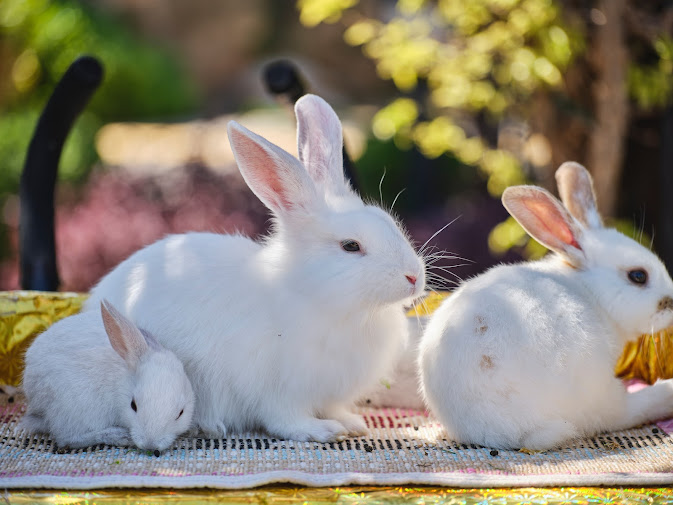
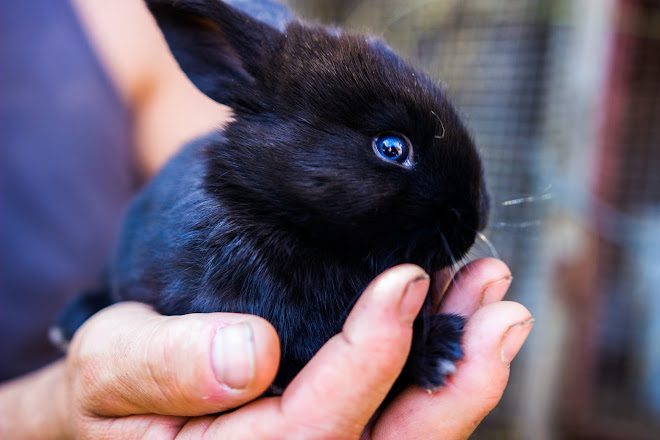
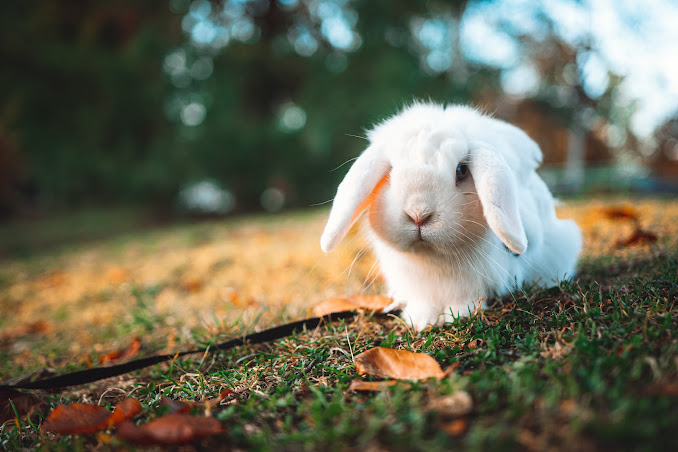
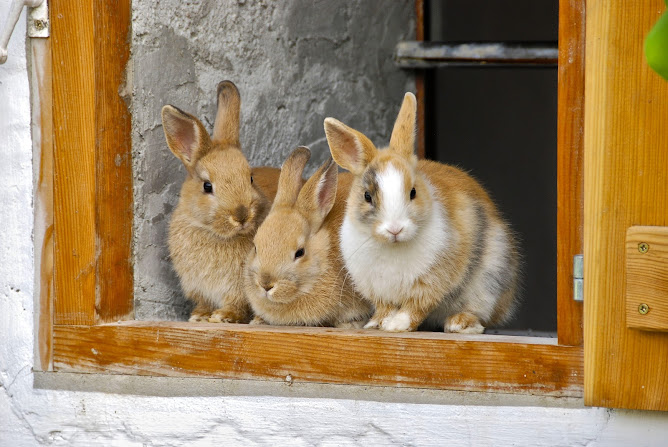
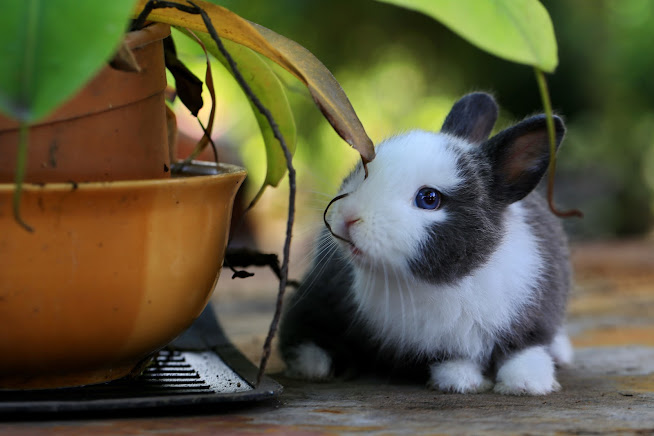
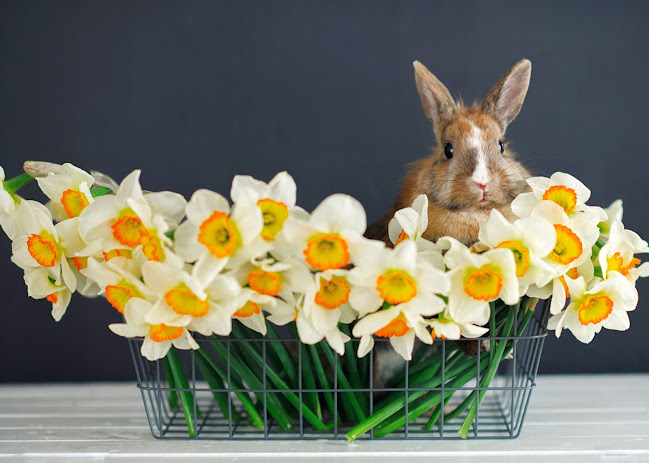
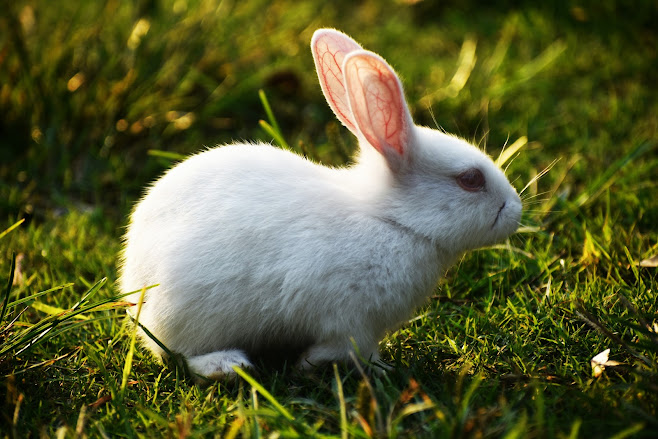



Comments
Post a Comment